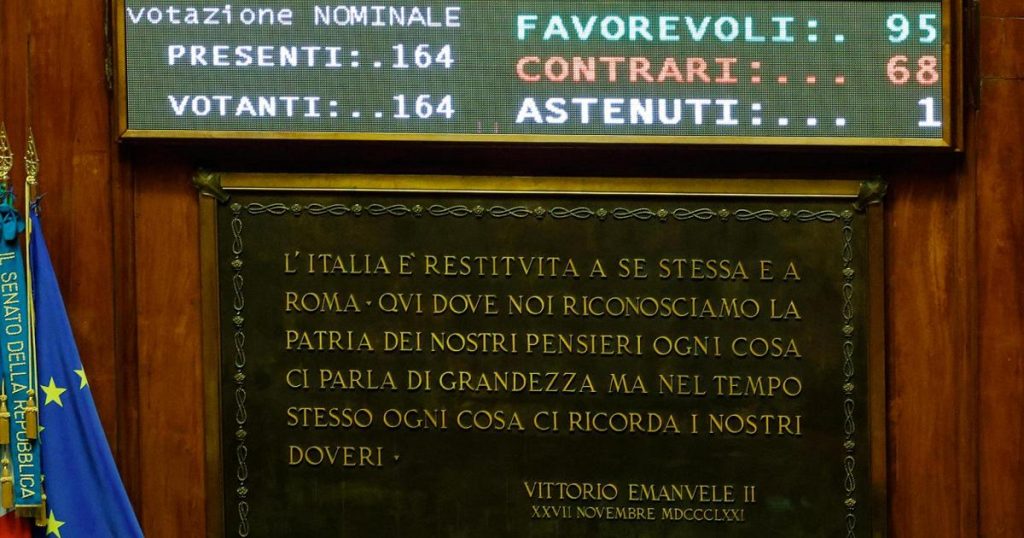The Pnrr quater decree, which passed in the Senate with 95 yes votes, 68 no votes, and one abstention, has become law. The bill, which was originally passed by the cdm on February 26th, is a comprehensive piece of legislation that covers a wide range of topics, including infrastructure, justice, healthcare, and sports. It aims to accelerate and centralize the implementation of various projects, allocating 25 billion euros in additional funds to complete the Plan. Specific measures include strengthening the role of the Chigi Palace task force and providing resources for the stabilization of judicial administration contract workers.
The package of labor reforms includes changes to the point-based driver’s license system and stricter regulations for construction sites. The initial allocation of 30 points remains the same, but a decree will determine the possibility of additional credits and the recovery of deducted points. Subcontractors will receive greater economic protections in contracts, ensuring that agreements benefit from the input of more representative employer and union organizations. The bill also introduces easier certification of requirements and softer penalties for injuries resulting in disabilities.
In an effort to reduce waiting lists and limit the use of freelance doctors, the law facilitates the hiring of medical professionals in training by removing the previous spending cap from 2009 and eliminating the 18-month limit for contracting trainees outside of the specialization school network. Pensioned public administration workers will be allowed to return to help with the reconstruction efforts following the 2009 and 2016 earthquakes. The government will also have the authority to intervene when targets are not met, and funds may need to be returned in cases of incomplete or unsuccessful projects.
Additional measures in the decree include restrictions on the influence of Poste in the PagoPa payment system and increased control over fraudulent and exploitative practices in agriculture. The bill also eliminates certain requirements for tour guides and introduces a specific plan for the transition to a digital economy, with incentives for businesses to invest in innovation. Special commissioners will be appointed to oversee various aspects of the recovery plan, including the creation of student housing, the retrieval of assets confiscated from criminal organizations, and the implementation of anti-exploitation measures in agriculture.
Overall, the Pnrr quater decree covers a wide range of topics and aims to streamline the implementation of projects outlined in the national recovery plan. The bill includes labor reforms, healthcare improvements, stricter controls on public spending, and measures to combat fraud and exploitation. With these updates, the government hopes to accelerate the recovery process and provide support for key sectors of the economy.


